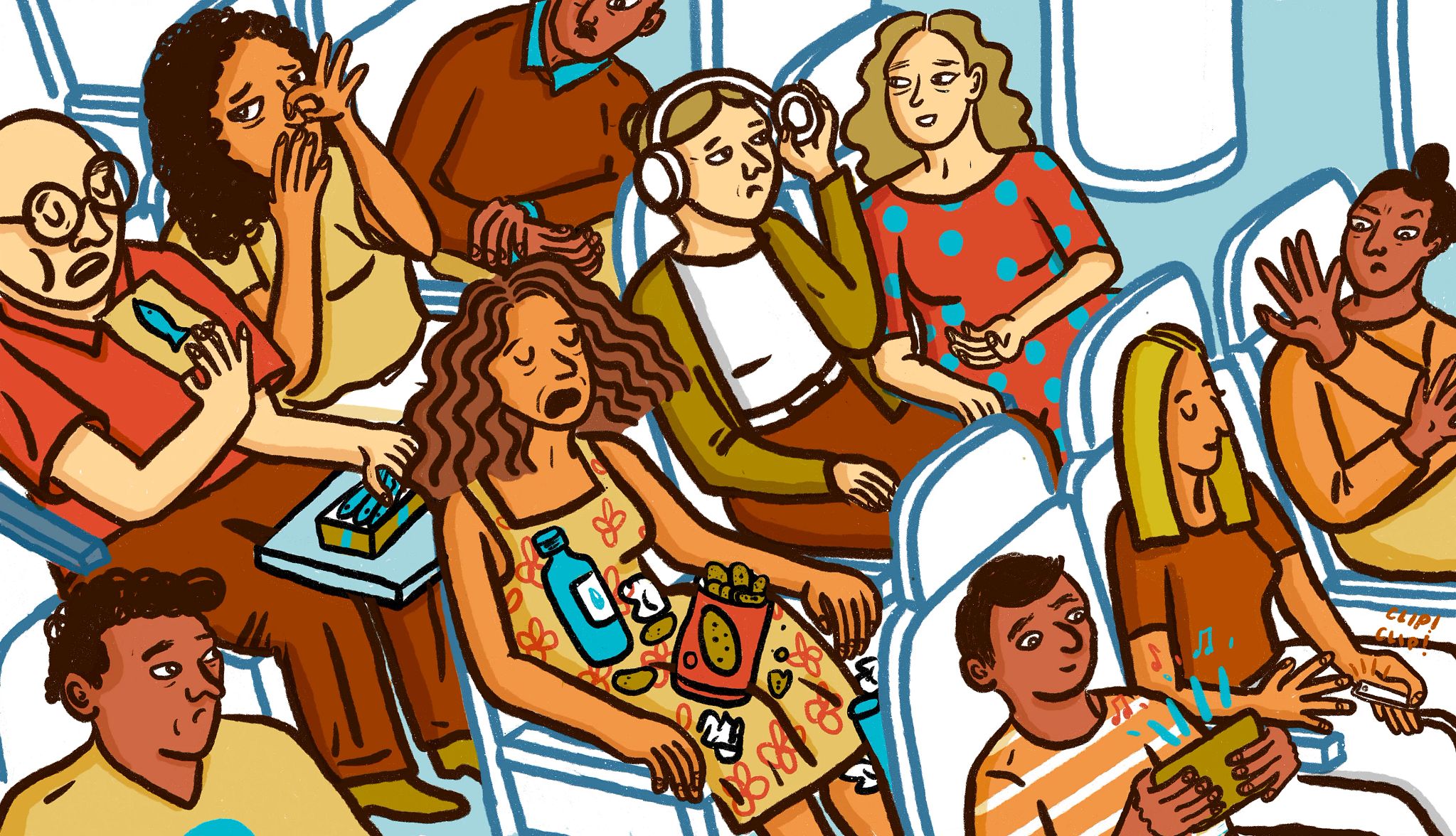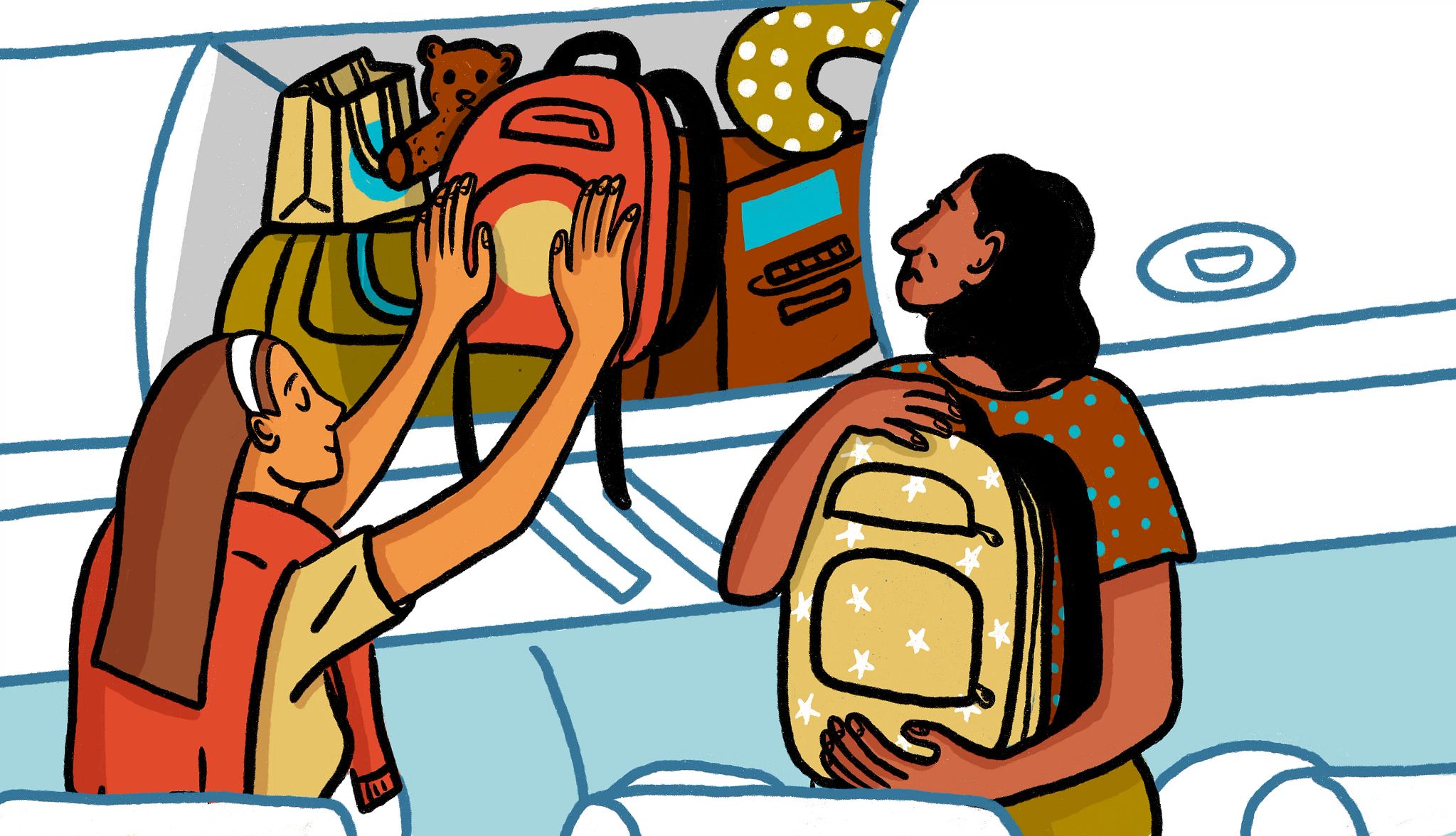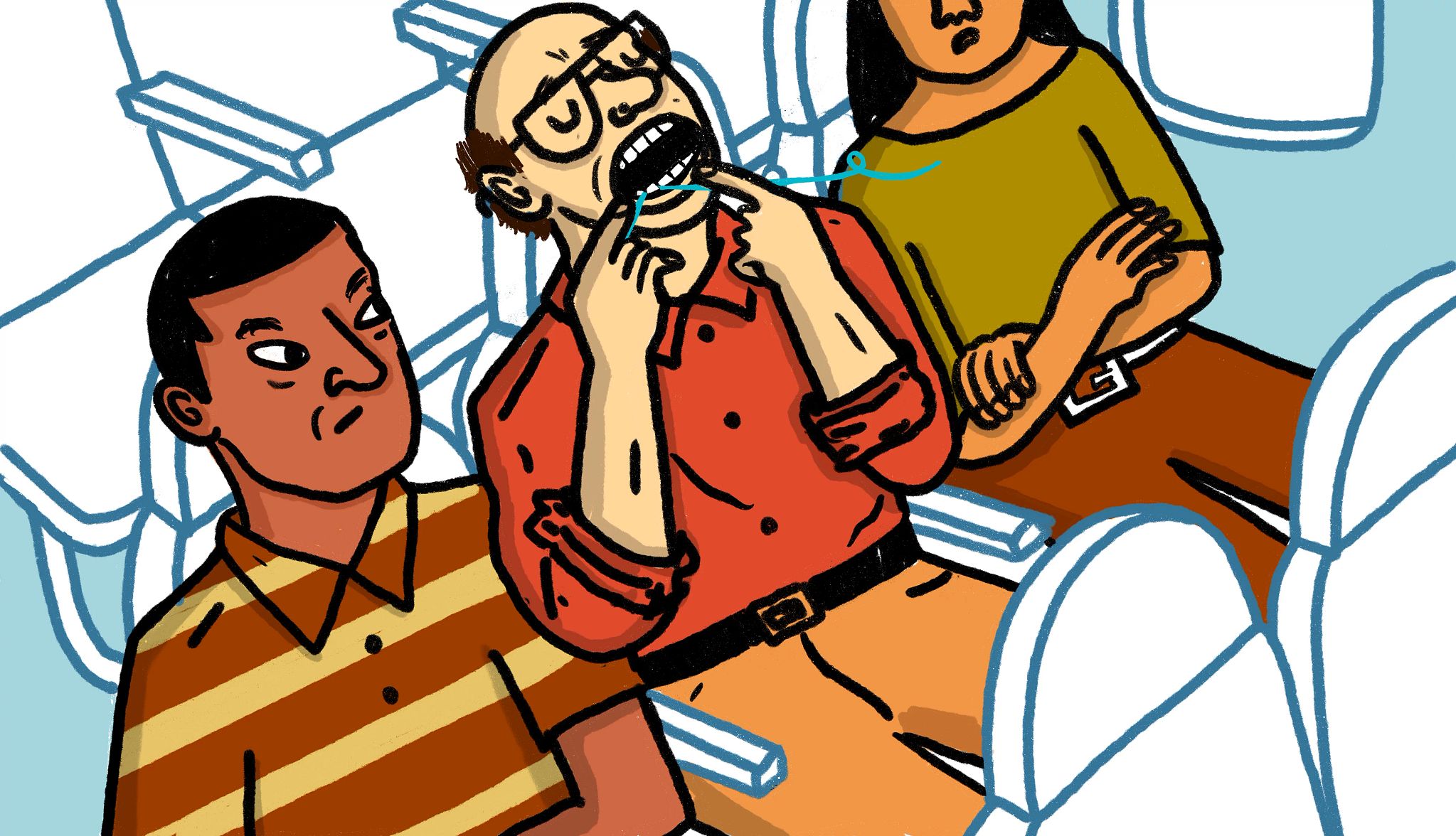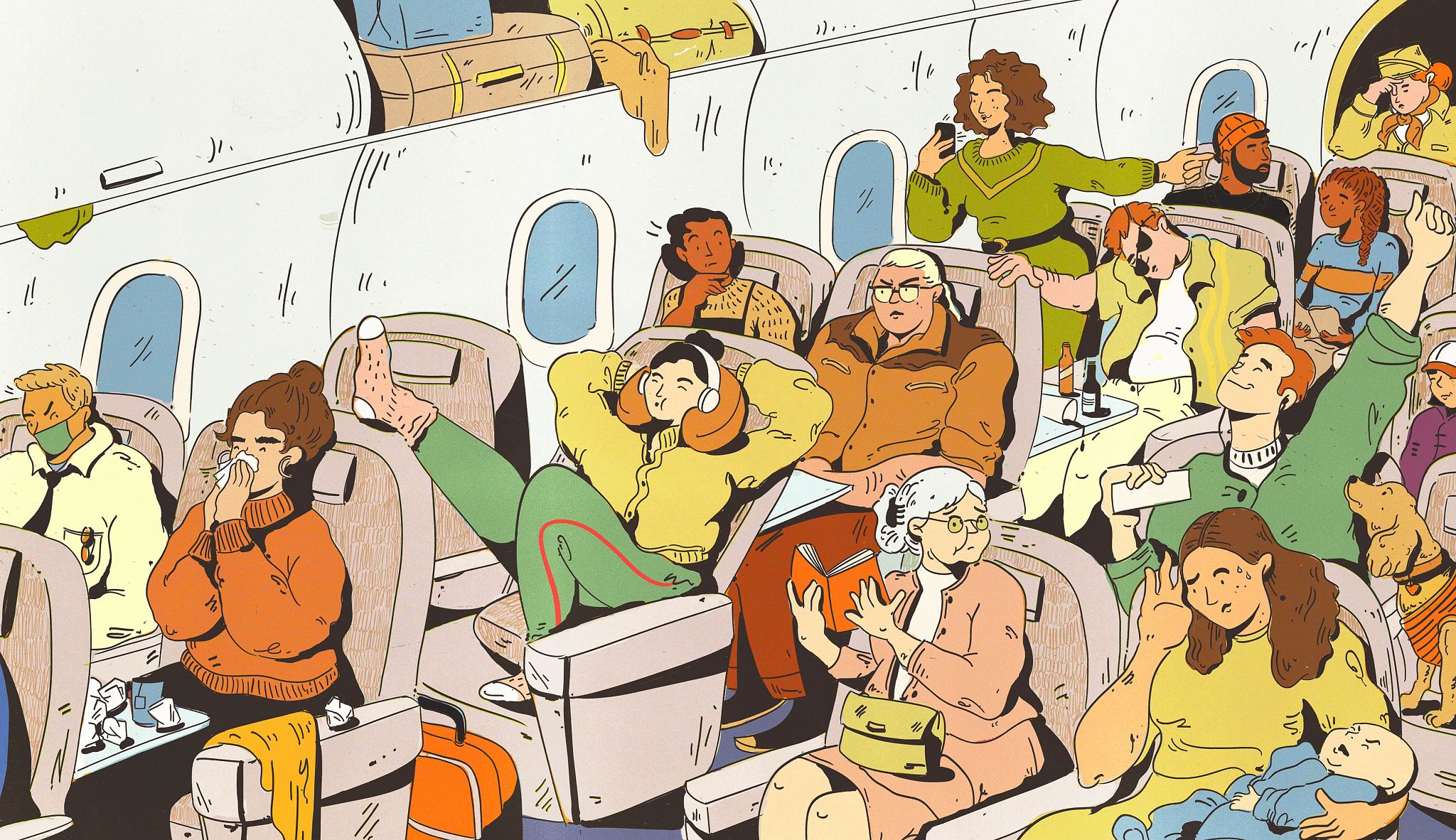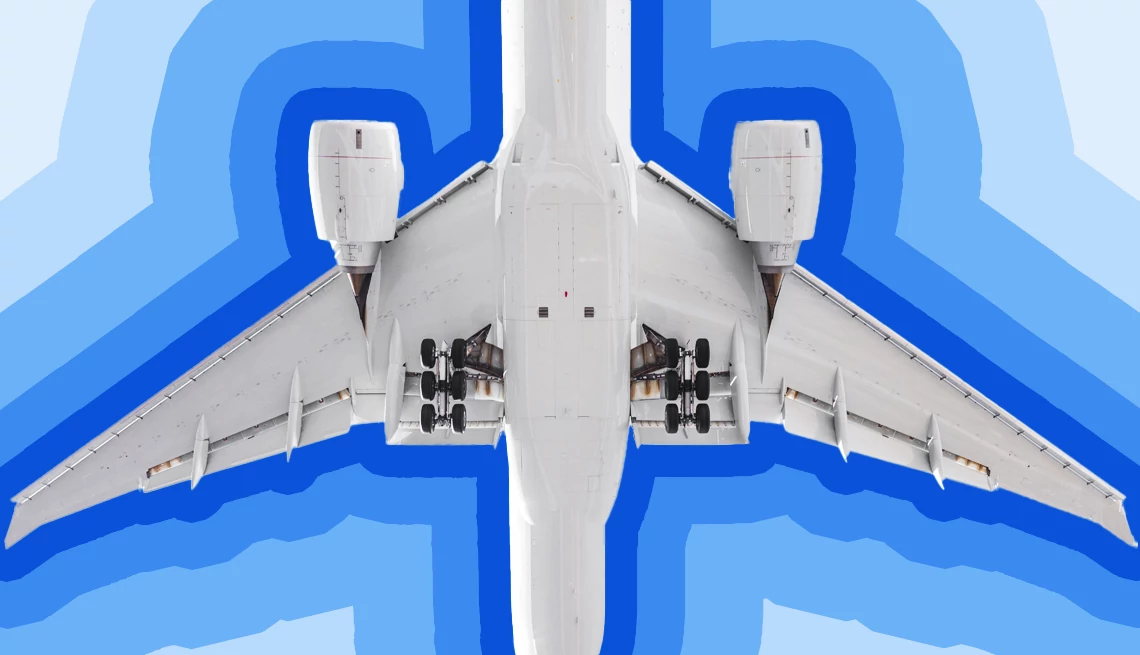AARP Hearing Center
As our capacity to travel the world has expanded, our ability to interact considerately while doing so appears to have done just the opposite.
A recent Pew Research Center study found that nearly half of U.S. adults think public behavior has become ruder since the COVID-19 pandemic, continuing a trend identified years earlier.
The rudeness intensifies during air travel, which is plagued by other dubious trends, including busier airports, flight delays, shrinking legroom and reduced in-flight services. Meanwhile, air travel is on the rise for adults 50-plus, according to AARP’s 2025 Travel Trends survey.
Fold in a fellow traveler breaking out the nail clippers or shout-talking to the grandkids on speakerphone, and an already challenging situation quickly feels intolerable.
All the more reason to pack our manners, says Lisa Mirza Grotts, 62, author of A Traveler’s Passport to Etiquette in a Post-Pandemic World. “Etiquette matters more than ever; it helps us navigate the chaos with calm, especially for those of us who aren’t sprinting to Gate 19 anymore,” she says.
Here’s a reminder on what not to do, plus advice for when others haven’t gotten the memo.

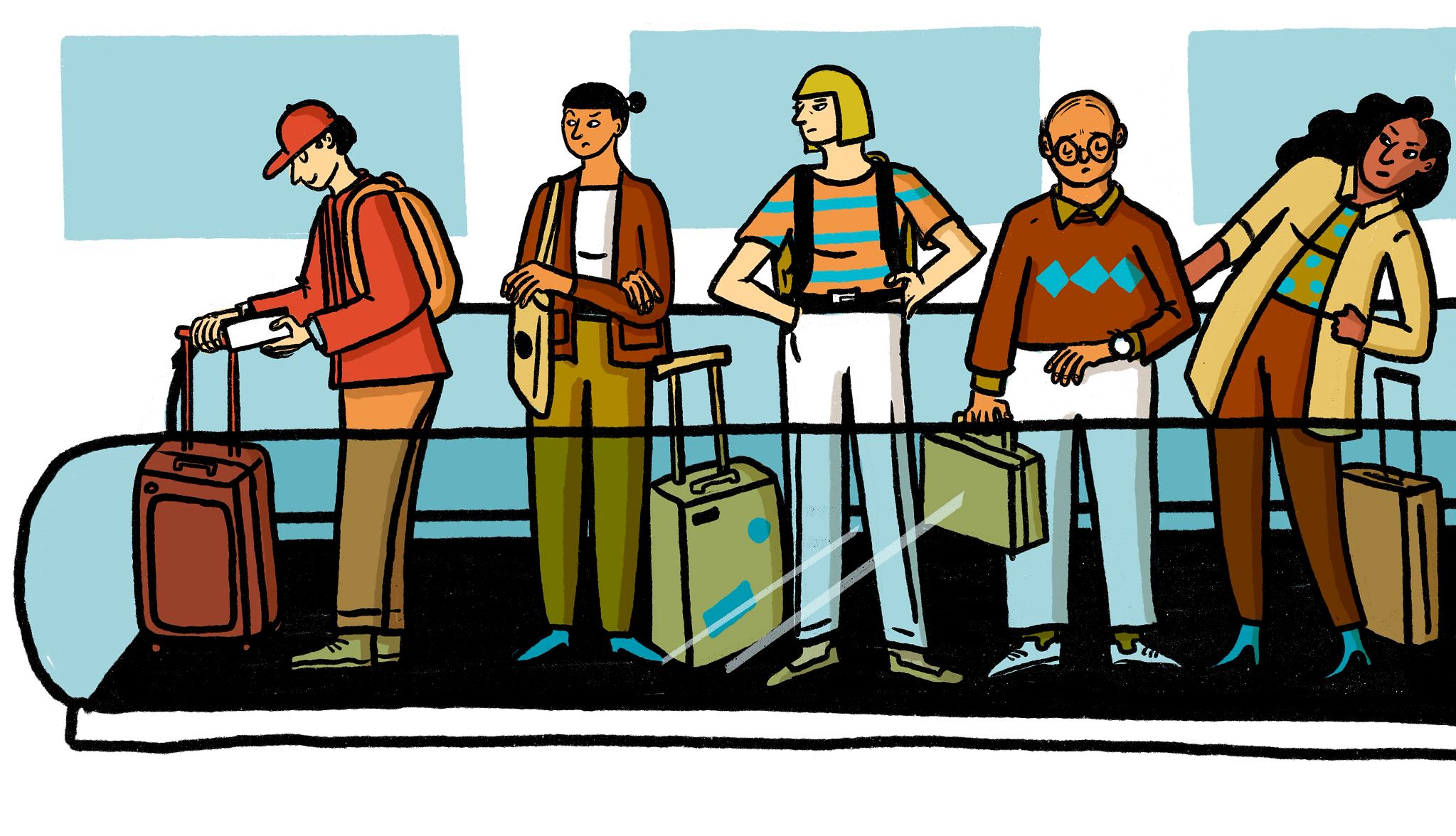
1. Standing still on moving walkways
If you’re in a hurry, a moving walkway makes it feel as if you’ve developed superpowers, whizzing you to your gate in record time. That is, until a fellow traveler plunks down in your way and forces you into neutral. “The etiquette rule is: Walkers on the left, people stand on the right. And that’s just the way it works,” Grotts says. “All of us need to keep the pace so others can safely pass.”
A polite, direct “Excuse me” should be all that’s needed to get them to move over.
2. Treating the airport lounge like it’s your kitchen
The airport lounge is one of air travel’s lingering luxuries, but it doesn’t feel luxurious when others act as if you’re invading their personal perk, spreading out, conducting business with abandon and loading up on food and drink.
“You know, you can go back as many times as you want. You don’t necessarily have to pile your plate sky-high,” says etiquette expert and former flight attendant Jacqueline Whitmore, 60, who’s the founder of The Protocol School of Palm Beach (Florida).
She’s seen travelers grabbing olives or cookies directly from the buffet with their hands. “Use the tongs … and keep the line moving,” she says. “Don’t sit there and sample everything. … That’s rude.”
3. Crowding the gate
Airline employees have an unofficial and unflattering name for travelers who loiter in the boarding area far earlier than necessary: gate lice. If it’s an attempt at early boarding, it’s futile, as gate agents typically don’t let travelers board before their group is called. Plus, you may be making it harder for others to board, adding time and annoyance. Whitmore and Grotts agree: Clear the path, keep your cool and wait your turn.
4. Putting bags on chairs

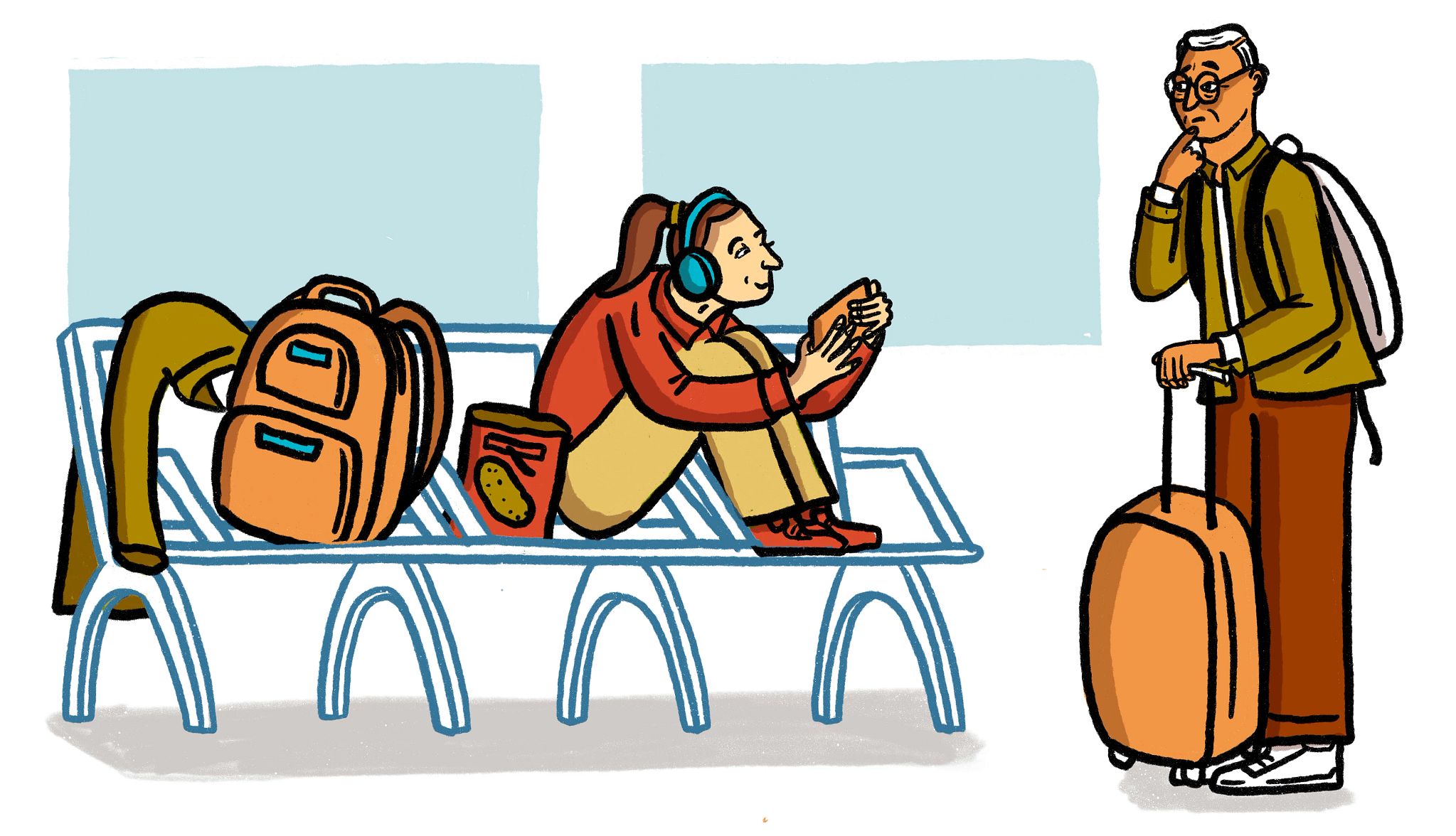
Scanning the gate for a place to sit, you spot them: Not empty seats but suitcases taking up seats.
“Seats are precious, especially for older people who may need to sit while waiting,” Grotts says. It’s not just rude; it’s unsanitary — the bags are filthy. “It’s like the bottom of a foot,” she says. It’s OK to temporarily save someone’s spot with your purse or backpack, she says. Otherwise, put it in front of your chair.

































































